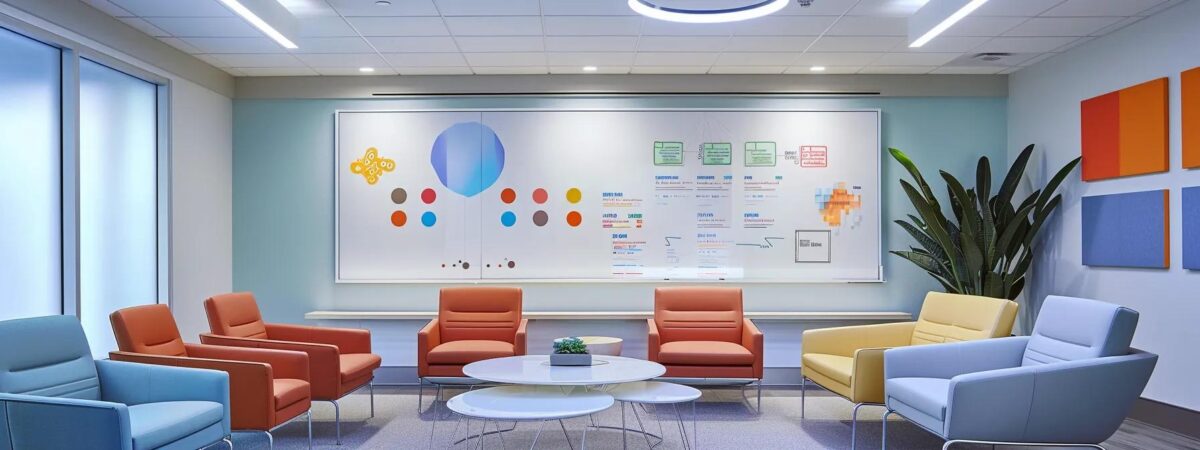
Table Of Contents:
- Best Practices at Orange County’s Top Addiction Treatment Center
- Understanding Orange County’s Addiction Treatment Approaches
- Key Elements of Personalized Treatment Plans
- Engaging Clients Through Innovative Activities
- Building Trust With Experienced Staff
- Addressing Co-Occurring Disorders Effectively
- Measuring Success in Addiction Treatment
- Frequently Asked Questions
- Table: Summary of Key Treatment Elements and Their Benefits
- List: Essential Values in Addiction Treatment
Best Practices at Orange County’s Top Addiction Treatment Center
Addiction treatment in Orange County, CA is a multifaceted process that requires a combination of proven strategies to achieve lasting recovery. At Orange County’s top addiction treatment center, evidence-based therapies are seamlessly integrated with holistic care to offer individualized treatment programs (including options such as partial-hospitalization-program-php). The center is renowned for its success in helping individuals overcome substance use disorders—including alcohol and opiate addiction—while addressing underlying mental health issues such as depression, anxiety, and stress. Resources like samhsa.gov provide further insights into comprehensive treatment-recovery strategies. By designing personalized treatment plans, the center ensures that every client’s needs are met through targeted therapies, innovative activities, and ongoing support from experienced professionals. This approach is especially important for individuals who have experienced repeated relapses or require specialized interventions, such as the intensive-outpatient–program-iop, ensuring a flexible continuum of care.
The addiction treatment center in Orange County, CA, provides a wide array of programs—from partial hospitalization programs (PHP) and intensive outpatient programs (IOP) to group therapy sessions and holistic activities like yoga and art therapy. Emphasis is placed on family involvement, life skills training, and holistic nutritional education to establish a strong foundation for sustained recovery. Clients receive comprehensive care that includes diagnosis, medication management, and access to aftercare services that support long-term sobriety. The balanced combination of behavioral therapies, mindfulness practices, and tailored recreational activities promotes holistic healing, improved cognitive function, and a supportive community.
This article explores the diverse addiction treatment in Orange County, CA approaches employed by the center, details the construction of personalized plans through comprehensive assessments, highlights the role of innovative activities in client engagement, and describes the importance of experienced staff. It also reviews methods for addressing co-occurring disorders and the metrics used to evaluate treatment success, maintaining a compassionate, supportive, and professional tone throughout.
Understanding Orange County’s Addiction Treatment Approaches
The addiction treatment center in Orange County employs a spectrum of addiction treatment strategies refined over years of clinical practice and research. One major approach is the use of evidence-based therapies, such as Cognitive Behavioral Therapy (CBT) and Dialectical Behavior Therapy (DBT), which help clients identify and challenge destructive thought patterns and behaviors. These therapies are critical not only in addressing the addiction but also in managing co-occurring emotional and psychiatric issues. By relying on validated methods, clinicians achieve measurable changes in behavior, reduced relapse rates, and improved mental health, which are essential for recovery.
Explore Evidence-Based Therapies and Their Effectiveness
Evidence-based therapies are the cornerstone of the addiction treatment in Orange County, CA, center’s approach. Clinically validated modalities like CBT help clients identify the thought patterns leading to substance use, while DBT aids in emotional regulation and stress management. These therapies provide measurable progress through trigger identification, development of coping strategies, and ongoing assessments. In addition, therapists incorporate motivational interviewing to enhance personal commitment to change. This integration not only smooths the transition from addiction but also minimizes relapse by addressing core addictive behaviors.
Learn About Holistic Care and Its Role in Recovery
Holistic care at the addiction treatment center in Orange County, CA treats the individual as a whole by integrating physical, emotional, and spiritual well-being. Therapeutic practices such as yoga, meditation, nutritional counseling, and art therapy are incorporated to reduce stress and promote mindfulness—key elements in managing addiction. Clients learn self-awareness techniques and resilience-building practices that foster long-term commitment to sobriety. Holistic sessions encourage self-expression and emotional release, providing a safe space for clients to process complex feelings—a benefit especially for those with anxiety or depression. This comprehensive approach supports healing across all aspects of a client’s life.
Investigate Behavioral Therapies Tailored for Clients
Behavioral therapies are customized to replace harmful habits with healthy patterns. These therapies empower clients to make positive behavioral changes that enhance their social, emotional, and mental well-being. For example, contingency management rewards sobriety and has been shown to increase treatment retention. Personalized behavioral plans are developed using extensive assessments—including clinical interviews and psychological testing—to identify triggers and stressors. Tailored interventions, such as family therapy sessions, relapse prevention training, and group dynamics, create a supportive environment that encourages sharing and resilience building.
Discover the Significance of Dual Diagnosis Treatment
Dual diagnosis treatment is emphasized for individuals confronting both substance use disorders and mental health issues like depression, anxiety, bipolar disorder, or PTSD. Integrated treatment plans target both areas simultaneously, reducing relapse risk when mental health issues might otherwise be neglected. Clinicians use a combination of medication-assisted treatment (MAT), psychotherapy, and behavioral interventions to manage withdrawal symptoms and support long-term mental health. Research indicates that integrated care can reduce hospital readmission rates compared to traditional treatments that do not address dual diagnosis.
Review the Impact of Family Involvement in Therapy
Family involvement plays a crucial role in the recovery process by helping restore strained relationships while building a support network. Family therapy sessions offer insights into familial triggers and systemic issues that contribute to substance abuse. Studies show that clients whose families participate in therapy have higher rates of sustained abstinence. By teaching communication skills, conflict resolution, and emotional regulation, family involvement strengthens the support system that is vital for long-term recovery.
Examine Aftercare Support and Its Benefits
Aftercare support is essential for maintaining long-term sobriety and preventing relapse. Once primary treatment is complete, clients participate in support groups, ongoing counseling, and regular assessments. Structured aftercare reinforces behavioral changes and helps clients navigate the challenges of returning to everyday life. Regular check-ins and relapse prevention strategies in aftercare programs have been shown to significantly reduce relapse rates during the first year post-treatment.
Key Elements of Personalized Addiction Treatment Plans in Orange County, CA

Personalized treatment plans are fundamental to effective addiction treatment at the center. These plans are crafted through comprehensive assessments that consider each client’s addiction type, mental health status, and life situation. The resulting dynamic and responsive plan evolves as the client progresses through recovery.
Assess the Importance of Individualized Assessments
Individualized assessments initiate the personalized treatment process. A combination of clinical interviews, standardized questionnaires, and laboratory tests is used to evaluate substance abuse severity, mental health, and environmental factors. Detailed evaluations help identify underlying issues such as trauma, co-occurring disorders, and family dynamics. Utilizing validated assessment tools provides reliable data that can be tracked over time to measure progress and adjust treatment intensity as needed.
Identify Tailored Therapies for Different Addiction Types
Tailored therapies address the specific needs associated with various addictions, whether involving alcohol, opiates, stimulants, or hallucinogens. The center’s extensive toolkit includes behavioral therapies, medication-assisted treatment, and holistic practices. For example, opiate addiction may be managed with buprenorphine or methadone alongside CBT and mindfulness, while stimulant abuse treatments may focus on stress management and group therapy. This customization ensures that interventions align with both the biochemical and psychological aspects of the addiction.
Discuss the Role of Client Preferences in Addiction Treatment in Orange County, CA
Involving clients in the treatment decision-making process reinforces ownership of their recovery journey. The center emphasizes collaborative care, where clinicians discuss different intervention options and respect client preferences—whether opting for individual sessions, group therapy, yoga, or art therapy. This shared approach improves engagement and treatment adherence while increasing satisfaction and long-term sobriety rates.
Highlight Ongoing Evaluations During the Recovery Process
Ongoing evaluations are crucial to monitor progress and adjust treatment as needed. Regular clinical interviews, self-reports, and objective tests help clinicians identify signs of relapse or plateau early on. These continuous assessments ensure that treatment remains appropriately challenging and supportive, enabling timely adjustments that maintain momentum throughout recovery.
Outline Potential Adjustments Based on Progress
Based on evaluation feedback, clinicians may increase counseling frequency, introduce new holistic therapies, or adjust medication dosages. This flexibility allows for a rapid response to emerging challenges and ensures that clients’ evolving needs are met. For instance, a client showing steady improvement with behavioral therapy might benefit from more peer-support sessions, while early signs of relapse may call for intensified intervention. Such adaptations reinforce the client’s confidence and commitment to recovery.
Explain Integration of Life Skills Training in Plans
Life skills training equips clients with practical strategies to handle everyday challenges without resorting to substance use. Training in stress management, communication, time management, and financial literacy bridges the gap between clinical recovery and everyday living. Workshops that include interactive role-playing and real-world simulations have been shown to reduce relapse risk and build confidence, ensuring that clients achieve sustainable independence.
Engaging Clients Through Innovative Activities
Innovative activities are integral to client engagement, helping to build motivation and reinforce positive behaviors. At the treatment center, recreational and creative therapies complement clinical interventions and support holistic healing. These activities encourage emotional expression, foster social connections, and provide constructive outlets for managing stress and anxiety.
Participate in Therapeutic Recreational Activities
Recreational activities such as outdoor excursions, sports, group fitness, and nature walks are incorporated into treatment plans to boost physical health and encourage social interaction. These activities counteract feelings of isolation common in early recovery by fostering a sense of collective accountability. Participation in structured recreational outings has been shown to improve mood regulation and treatment retention, offering clients positive experiences that counterbalance past substance abuse.
Experience Group Therapy Dynamics for Connection
Group therapy is a foundational aspect of the center’s treatment model. It provides clients with the opportunity to share experiences, learn coping strategies, and build a network of support. By engaging in interactive exercises, role-playing, and group discussions centered on resilience and recovery, clients gain comfort and validation through peer connections. The environment of group therapy lessens feelings of isolation and fosters trust, which is essential for sustained sobriety.
Try Art and Music Therapy for Emotional Expression
Art and music therapy provide creative outlets that help clients express emotions non-verbally. These therapies allow individuals to process feelings and experiences that may be difficult to articulate, thereby reducing stress and promoting self-reflection. Clients often experience enhanced emotional awareness and reduced anxiety levels through these modalities, which contribute to overall mood stabilization and long-term recovery.
Implement Mindfulness Techniques to Reduce Stress
Mindfulness practices, including meditation, deep breathing, and guided imagery, play a key role in helping clients manage stress and reduce the likelihood of relapse. By learning to focus on the present moment, clients develop healthier responses to cravings and negative thought patterns. These structured sessions enhance cognitive function and emotional regulation, fostering a sense of calm and resilience essential for continuous recovery.
Offer Life Skills Workshops to Promote Independence
Interactive life skills workshops provide training in stress management, interpersonal communication, job readiness, and conflict resolution. These sessions help clients build practical skills that support independent living and reduce the risk of relapse. By participating in role-playing exercises and group discussions, individuals gain confidence and reinforce their commitment to a substance-free lifestyle.
Include Nutritional Education for Holistic Healing
Nutritional education is an important aspect of holistic healing, supporting both physical and mental recovery. At the treatment center, nutritionists work with clients to develop personalized diet plans that promote detoxification, boost immunity, and support brain health. Regular nutritional workshops emphasize the benefits of balanced diets rich in fruits, vegetables, lean proteins, and whole grains, thereby reinforcing the overall treatment gains.
Building Trust With Experienced Staff

The relationship between clients and experienced staff is critical to successful addiction treatment. At Orange County’s top addiction treatment center, building trust through skilled, compassionate professionals is a top priority. The staff comprises qualified clinicians, counselors, nurses, and holistic care experts who remain current with the latest treatment techniques and models.
Meet the Qualifications of Addiction Treatment Professionals in Orange County, CA
The center’s addiction treatment professionals hold advanced degrees and specialized certifications in fields such as psychology, psychiatry, social work, and counseling. Backed by years of clinical experience, these professionals are selected through rigorous processes that ensure high standards of empathy and competence. Their expertise enables them to navigate complex dual diagnosis cases efficiently and develop personalized treatment plans that yield measurable improvements in client behavior and mental health.
Recognize the Importance of Therapist-Client Rapport
Developing a strong rapport between therapists and clients is fundamental to treatment success. Trust is built gradually through consistent, empathetic communication. The center’s emphasis on open dialogue, active listening, and mutual respect helps clients feel comfortable sharing vulnerabilities, which is essential for self-awareness and long-term recovery. Research supports that a positive therapeutic alliance improves both treatment retention and outcomes.
Explore Continuous Training and Education for Staff
To maintain excellence in care, the center’s staff regularly participates in ongoing training and education. Workshops, seminars, and certification courses ensure that professionals are up-to-date with the latest research and innovative treatment modalities. This commitment to continuous learning fosters a culture of excellence and allows staff to integrate advanced techniques into client care effectively.
Review Success Stories of Staff-Client Collaboration
Numerous client success stories attest to the effectiveness of staff-client collaboration. Shared testimonials and case studies highlight how the personalized care and sustained support provided by the skilled team have enabled clients to make coordinated breakthroughs in emotional healing and behavioral change. These success stories inspire current clients and reinforce the center’s commitment to building supportive, transformative relationships.
Understand Cultural Competence in Treatment Delivery
Cultural competence is vital for creating an inclusive, respectful treatment environment. The center’s staff undergo specialized training to understand different communication styles, family dynamics, and societal influences, ensuring that every client receives personalized and respectful care. This culturally sensitive approach enhances client engagement and satisfaction, contributing to better long-term outcomes.
Examine Confidentiality Protocols for Client Comfort
Strict confidentiality is essential for establishing a safe space where clients can share their experiences openly. The center adheres to rigorous HIPAA protocols and maintains secure record-keeping and confidential therapy sessions. Transparent communication about privacy measures builds trust and encourages candid dialogue between clients and therapists, which is crucial for effective treatment.
Addressing Co-Occurring Disorders Effectively
Co-occurring disorders—where substance use disorders and mental health issues occur together—pose unique challenges to recovery. The treatment center addresses these complexities through an integrated model that simultaneously targets both aspects.
Define Co-Occurring Disorders and Their Challenges
Co-occurring disorders involve the simultaneous presence of substance use and significant mental health issues, such as depression, anxiety, bipolar disorder, or PTSD. These overlapping conditions complicate diagnosis and treatment and require specialized, coordinated strategies. Failure to address both aspects can lead to fragmented care, highlighting the need for a comprehensive diagnostic approach.
Discuss Integrated Treatment Strategies for Success
Integrated treatment strategies are designed to address both addiction and mental health issues together. Using a blend of medication-assisted treatment, psychotherapy, group counseling, and holistic practices, the center helps mitigate the impact of each condition. This coordinated approach improves patient outcomes by ensuring that all aspects of a client’s health are addressed in tandem, thus lowering relapse rates.
Review Assessments for Mental Health and Addiction in Orange County, CA
Thorough assessments are essential for understanding the interaction between addiction and mental health challenges. Clinicians use standardized tools to evaluate the severity of both conditions and regularly reassess progress throughout treatment. These ongoing evaluations allow for timely adjustments to the treatment plan, ensuring that interventions remain aligned with the client’s changing needs.
Explore Medication Management Options Available
Medication management plays a key role in stabilizing mood and reducing cravings for clients with co-occurring disorders. The center tailors medication regimens—combining options like antidepressants, anti-anxiety agents, or mood stabilizers with medication-assisted treatments such as buprenorphine—to each client’s unique profile. This careful management supports a fuller engagement in therapy and reduces relapse risk.
Offer Support Groups Focused on Dual Recovery
Specialized support groups provide a platform for clients to discuss the complexities of dual recovery. These groups offer peer support, practical advice, and a sense of community that helps reduce isolation and stigma. Participation in dual recovery groups reinforces treatment gains and motivates clients to maintain sustained abstinence.
Highlight Staff Training in Managing Co-Occurring Issues
Specialized training in managing co-occurring disorders is a hallmark of the center’s comprehensive care approach. Continuous education ensures that staff are adept at recognizing and responding to the intricate interactions between mental health symptoms and substance use. This expertise allows for more informed treatment recommendations and contributes to higher rates of successful recovery.
Measuring Success in Addiction Treatment in Orange County, CA

Measuring treatment success is crucial for validating the effectiveness of intervention strategies and for ongoing improvements in care delivery. At the treatment center, a variety of metrics are used to assess both clinical and patient-focused outcomes.
Evaluate Common Metrics for Addiction Treatment Effectiveness in Orange County, CA
Metrics such as relapse rates, treatment retention, improvements in mental health scores, and client-reported quality of life are used to gauge effectiveness. Standardized instruments like the Addiction Severity Index (ASI) and regular self-assessments help document progress over time. Both quantitative data and qualitative feedback from clients are reviewed to ensure all dimensions of recovery—clinical, social, and emotional—are addressed.
Understand Relapse Prevention Strategies and Planning
Relapse prevention is a critical component of sustaining long-term recovery. The center develops detailed relapse prevention plans, which include regular follow-ups, support group meetings, and crisis counseling access. By identifying triggers and systematically planning strategies to address them, clinicians help clients build resilient pathways to sobriety. Research consistently indicates that structured relapse prevention strategies significantly reduce relapse occurrences.
Gather Client Feedback to Improve Services Offered
Regular surveys, structured interviews, and participatory reviews provide valuable client feedback that informs ongoing improvements to treatment practices. By analyzing both positive testimonials and constructive suggestions, the center can fine-tune its programs to better meet client needs, fostering a more responsive and effective treatment environment.
Investigate Long-Term Recovery Outcomes for Clients
Long-term success is measured by tracking clients’ progress well beyond the initial treatment phase. Factors such as sustained sobriety, improved mental health, successful social reintegration, and overall treatment satisfaction are documented through aftercare programs and alumni networks. This long-term data validates the durability of the treatment approach and confirms its effectiveness in promoting lasting recovery.
Discuss the Role of Community Support in Success
Community support plays an essential role in maintaining recovery after formal treatment ends. Local recovery groups, online forums, and family engagement initiatives provide a safety net that helps clients navigate everyday challenges. This ongoing support fosters a sense of belonging and accountability, which is critical for preventing relapse and ensuring that recovery remains a lifelong journey.
Review Graduates’ Experiences and Ongoing Involvement
Success stories from treatment graduates provide inspiring evidence of the center’s effectiveness. Alumni testimonials and mentorship programs demonstrate that the integrated approach of individualized treatment and community support yields lasting positive outcomes. The active involvement of graduates in support networks also reinforces the quality improvement efforts of the center.
Frequently Asked Questions
Q: What makes Orange County’s addiction treatment approaches unique?
A: Orange County’s addiction treatment approaches combine evidence-based therapies with holistic, individualized care. Clients benefit from comprehensive assessments, dual diagnosis treatment, and continuous aftercare support that address both addiction and co-occurring mental health issues simultaneously, leading to higher success rates and sustainable recovery.
Q: How do personalized treatment plans improve recovery outcomes?
A: By tailoring therapies to each individual’s unique needs—through comprehensive assessments, family involvement, and life skills training—personalized treatment plans enhance adherence, reduce relapse rates, and promote overall well-being. Continuous evaluations ensure that treatment strategies remain effective over time.
Q: Why is family involvement crucial in addiction treatment?
A: Family involvement strengthens a client’s support network and facilitates open communication. Family therapy helps repair relationships and provides education on how loved ones can support recovery, significantly improving treatment retention and reducing the risk of relapse.
Q: What role do innovative activities play in addiction recovery?
A: Innovative activities such as therapeutic recreational outings, art and music therapy, mindfulness practices, and life skills workshops provide essential outlets for emotional expression and stress relief. They enhance social connections and complement traditional therapies, thereby supporting long-term sobriety.
Q: How are co-occurring disorders managed in the treatment program?
A: The center uses an integrated treatment approach for co-occurring disorders, combining medication-assisted treatment, psychotherapy, group counseling, and specialized support groups to address both addiction and underlying mental health issues concurrently. This comprehensive strategy leads to improved outcomes and lower relapse rates.
Q: What metrics are used to measure the success of treatment programs?
A: Success is measured through quantitative and qualitative metrics such as relapse rates, treatment retention, clinical assessment scores, and client feedback. Standardized tools like the Addiction Severity Index (ASI) are used alongside long-term follow-up studies to assess effectiveness and sustainability.
Q: How important is aftercare support in maintaining long-term sobriety?
A: Aftercare support is vital as it provides ongoing guidance through regular check-ins, support groups, and continuous counseling, which help manage potential triggers and reinforce recovery skills. Effective aftercare significantly reduces relapse risk by offering a structured, adaptable support network.
Table: Summary of Key Addiction Treatment Elements and Their Benefits
Below is a comprehensive table summarizing the key components of treatment at Orange County’s top addiction treatment center, with an overview of their functions, benefits, and targeted outcomes.
| Key Element | Function | Benefit | Targeted Outcome |
|---|---|---|---|
| Evidence-Based Therapies | Use of CBT, DBT, and motivational interviewing | Reduces cravings; improves mental health | Lower relapse rate; improved cognition |
| Holistic Care | Integration of yoga, meditation, and nutritional counseling | Enhances overall well-being; aids stress management | Improved emotional and physical health |
| Behavioral Therapies | Customized interventions to change maladaptive behaviors | Develops positive coping strategies | Sustainable behavioral change |
| Dual Diagnosis Treatment | Integrated therapy for addiction and mental health issues | Reduces treatment complications | Comprehensive, coordinated recovery |
| Family Involvement | Inclusion of family therapy sessions and support groups | Strengthens support network | Higher treatment retention |
| Aftercare Support | Ongoing counseling and follow-up after primary treatment | Prevents relapse through structured support | Long-term sobriety |
| Personalized Treatment Plans | Tailored assessments and dynamic plan adjustments | Meets individual needs with flexible interventions | Enhanced client engagement |
| Innovative Activities | Recreational, art, and mindfulness therapies | Improves social connection and emotional expression | Greater overall treatment adherence |
| Experienced Staff | Qualified professionals with ongoing training | Ensures best practices and compassionate care | Reliable, empathetic treatment |
| Relapse Prevention Strategies | Structured planning and continuous monitoring | Reduces relapse risk; reinforces progress | Durable, long-lasting recovery |
This table visually summarizes how each component fosters recovery by delivering measurable benefits that contribute to the overall success of the treatment program.
List: Essential Values in Addiction Treatment
Below is a detailed list of essential values that drive successful addiction treatment at the center:
- Client-Centered Care – Tailoring treatment specifically to each client’s unique needs fosters a sense of ownership in the recovery process.
- Evidence-Based Practice – Utilizing scientifically validated methods such as CBT and DBT ensures effective intervention.
- Holistic Well-Being – Addressing physical, emotional, and spiritual health through integrated wellness activities promotes lasting recovery.
- Family Involvement – Including family members enhances the client’s support system and improves communication.
- Continuous Monitoring – Regular evaluations and adjustments based on progress ensure dynamic and effective recovery.
- Relapse Prevention – Comprehensive strategies to identify and manage triggers help reduce the risk of relapse.
- Professional Expertise – Leveraging the skills of a continuously trained, culturally competent staff guarantees compassionate and top-quality care.
This list encapsulates the foundational values that underpin every aspect of the center’s approach to addiction treatment, ensuring a holistic and sustainable path to recovery.
By integrating evidence-based therapies with holistic approaches, personalized treatment planning, innovative activities, and ongoing professional support, Orange County’s top addiction treatment center establishes a high standard for recovery practices. These best practices not only enhance immediate clinical outcomes but also build a robust framework for long-term sobriety and an improved quality of life. Prospective clients and their families are encouraged to explore these comprehensive approaches to understand how each element contributes to a successful recovery journey. The center’s commitment to personalized, compassionate care serves as a beacon of hope for those struggling with addiction, empowering them to overcome obstacles and rebuild their lives with renewed confidence and purpose.



